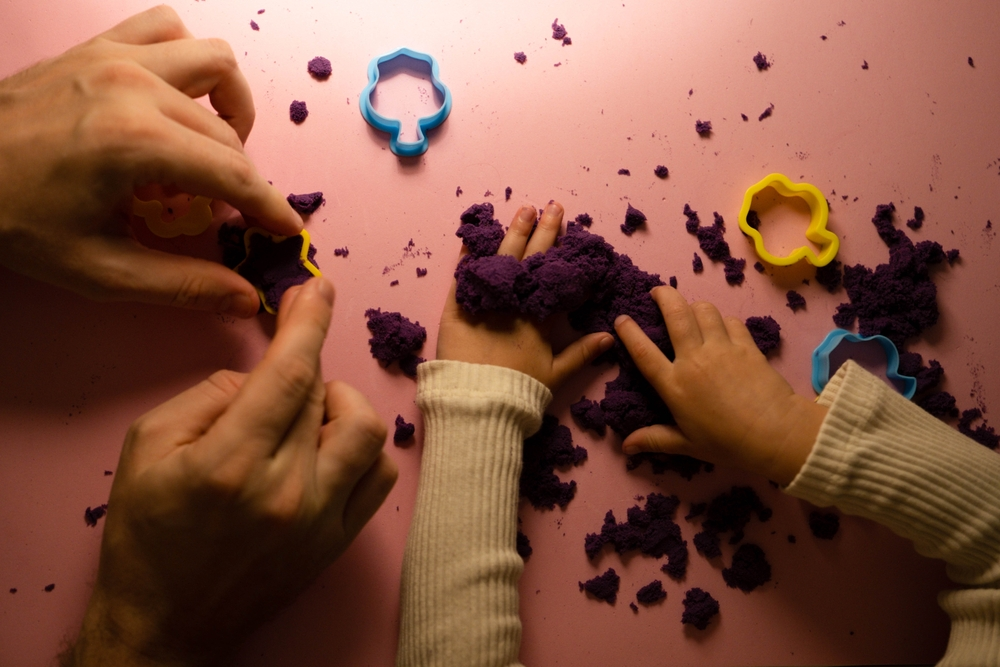Ever feel like you’re running a marathon but everyone else is casually strolling by?
Eer sit down to start one task, only to find yourself lost in five different tabs, with nothing actually done?
Ever wonder why “simple” things, like paying a bill, replying to a message, or remembering an appointment, can feel so exhausting?
If you’ve asked yourself these questions, you’re not alone. And no, it’s not laziness. It’s not a lack of effort. For many adults, it’s undiagnosed or unmanaged ADHD and occupational therapy can help.
ADHD in Adults: Beyond the Stereotypes
ADHD isn’t just hyper kids bouncing off classroom walls.
In adults, it looks like:
- Chronic procrastination (even on things you want to do).
- Feeling overwhelmed by “simple” tasks.
- Struggles with planning, prioritizing, and following through.
- Emotional highs and lows that feel hard to control.
And the worst part? Society expects adults to “have it all together” making the daily battles of ADHD feel invisible and isolating.
How Occupational Therapy can help?
Occupational therapy isn’t about “fixing” you.
It’s about helping you live life in a way that feels less overwhelming and more doable.
If you’re an adult with ADHD, you already know: it’s not that you aren’t trying hard enough. It’s that the world wasn’t exactly built with your brain in mind.
That’s where occupational therapy can make all the difference.
1. Building Routines That Actually Feel Right
Most of us with ADHD have tried to “be more organized” at some point new planners, apps, miracle morning routines.
And most of us have also watched those plans crash by Day three.
An occupational therapist doesn’t expect you to magically turn into someone you’re not.
Instead, they help you build routines around who you are, your energy levels, your focus patterns, your real life.
Tiny, doable steps that make your day flow better, not harder.
Research in The American Journal of Occupational Therapy even shows that creating simple, flexible routines can lower anxiety and help adults with ADHD actually get things done (Ghazvini et al., 2019).
2. Strengthening the Brain’s “Manager” Skills
Executive functioning is like the manager of your brain, planning, organizing, starting tasks.
And when that manager is on a long coffee break, everything feels harder than it should.
OTs teach you practical ways to:
- Set goals you can actually reach.
- Organize your spaces (and your thoughts).
- Start and finish the things you want to get done.
Not through sheer will power but through systems that match how your brain likes to work.
3. Managing the Emotional Rollercoaster
ADHD isn’t just about focus, it’s also about feelings.
Big feelings. Quick frustration. Unexpected shame. The guilt of forgetting, the sadness of “messing up” again.
Occupational therapists get it.
They help you learn calming techniques: mindfulness, sensory tools, simple practices, to ride the emotional waves without drowning in them.
A study in Psychiatric Clinics of North America shows that adults with ADHD often struggle with emotions just as much (if not more) than attention and real, structured strategies make a huge difference (Shaw et al., 2014).
4. Shaping Your Environment to Support You
Here’s a secret:
You don’t always have to try harder. Sometimes you just have to set things up differently.
Occupational therapists help you adjust your surroundings to make life easier like:
- Creating a distraction-free workspace.
- Setting up visual reminders where you actually see them.
- Using tools like timers, lists, or noise-canceling headphones.
You’re not messy
You just need spaces that work for you, not against you.
5. Finding and Growing Your Strengths
You are not a problem to solve.
You are a person with strengths, creativity, persistence, out-of-the-box thinking, that the world needs more of.
Occupational therapy isn’t about pointing out what’s “wrong.”
It’s about helping you see what’s right and using that to build a life that feels fuller, calmer, and more under your control.
You don’t have to spend your life fighting yourself.
With the right support, you can stop surviving and start thriving.
At Kikstart Rehabilitation, we walk alongside you helping you create systems, routines, and a way of living that truly fits who you are.
No judgment. No lectures. Just real, human support the way it should be.
References:
- Gutman, S. A., & Szczepanski, M. (2005). Adults with Attention Deficit Hyperactivity Disorder: Implications for Occupational Therapy Intervention. Occupational Therapy in Mental Health, 21(2), 13–38. https://doi.org/10.1300/J004v21n02_02
- Shaw, P., Stringaris, A., Nigg, J., & Leibenluft, E. (2014). Emotion dysregulation in attention deficit hyperactivity disorder. The American journal of psychiatry, 171(3), 276–293. https://doi.org/10.1176/appi.ajp.2013.13070966
- Mfa, R. J. S. (2025, March 14). Can occupational therapy help people who have ADHD?Healthline.https://www.healthline.com/health/adhd/can-occupational-therapy-help-people-who-have-adhd#how-ot-helps-adhd
- Tsukenjo, S. (2025, March 7). Occupational therapy for ADHD: How can OT help ADHD? University of St. Augustine for Health Sciences. https://www.usa.edu/blog/occupational-therapy-for-adhd-how-can-ot-help-adhd/


